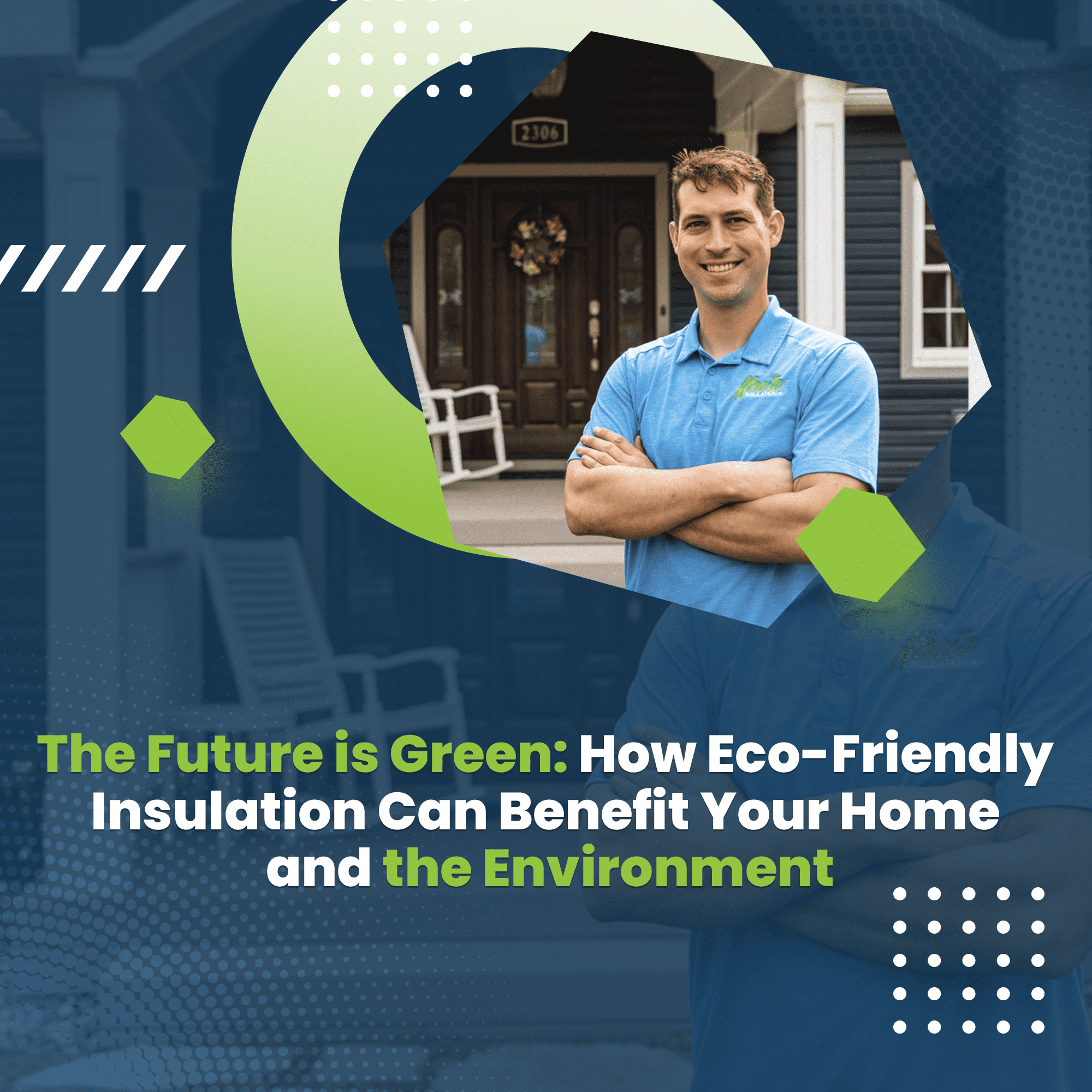
How Eco-Friendly Insulation Can Benefit Your Home and the Environment
Over the past few years, people worldwide have become more aware of human activity's environmental influence. Rising temperatures, catastrophic weather events, and other environmental calamities continue to wreak havoc on our world, and climate change, in particular, has emerged as a critical cause for concern. Consequently, many individuals are starting to reduce their carbon footprint and make their homes friendlier to the environment. One approach to accomplish this goal is using insulation that is favorable to the environment.
What exactly does "Eco-Friendly Insulation" refer to?
Environmentally friendly insulation is the insulation that is created from materials that are either renewable, sustainable, or recycled. Conversely, conventional insulation is frequently fabricated using components such as fiberglass or foam, which are non-renewable and non-sustainable resources. Insulation that is kind to the environment can be crafted from various materials, such as recycled denim, cellulose, the wool of sheep, or even mushrooms.
Advantages of Insulation That Is Good for the Environment
Using insulation that is less harmful to the environment in your home can have several positive effects. To begin, it has a positive impact on the surrounding ecosystem. Conventional insulation materials, whether they are being produced, used, or discarded, can have a sizeable negative effect on the surrounding ecosystem. For instance, fiberglass insulation is created from sand, which first needs to be mined and then processed; this is a step that can have a detrimental effect on the ecosystems of the surrounding area. In addition, improper disposal of fiberglass insulation can cause the release of hazardous substances to human health into the atmosphere. On the other hand, insulation that is favorable to the environment is crafted from components that can be renewed or recycled, hence lowering the negative influence it has on the surrounding ecosystem.
Insulation that benefits the environment can also help you save money on your monthly energy bills. Lower the energy required to heat and cool your home by installing insulation that is more efficient at keeping your home warm during the winter and cool during the summer. This will allow you to save money. This can result in significant cost reductions with time.
Lastly, insulation that is favorable to the environment might help enhance the air quality in your home. Conventional insulating materials have been known to emit potentially hazardous compounds into the air over time. This can be especially problematic for individuals who already have respiratory problems. On the other hand, environmentally friendly insulation is built from materials that are less prone to emitting dangerous chemicals into the air. This results in an improvement in the air quality throughout your home.
Insulation Materials That Are Good for the Environment
Insulation favorable to the environment is available now in several different forms. The following are some of the most frequent:
Insulation Made from Recycled Denim
Denim scraps that would have been thrown away are shredded and used to produce an insulating product called recycled denim. Because it is so simple to put in place and offers superior soundproofing, it is a material frequently used in residential and commercial construction.
Cellulose Insulation
Insulation of cellulose is created by recycling paper and cardboard into new products. It has had fire retardants and other chemicals applied to it to make it resistant to fire and various pests. Insulation made of cellulose is also very good at lowering environmental noise levels.
Insulation made from Sheep's Wool
The fleece of sheep is used to manufacture sheep's wool insulation. It is a resource that can be replenished and is also recyclable and biodegradable. Insulation made from sheep's wool is incredibly excellent at managing temperature and very effective at controlling moisture.
Conclusion
Insulation that is friendly to the environment is a fantastic method to make your home more familiar to the environment while also reducing the amount you spend on your monthly energy bills. Insulation favorable to the environment is available today in various forms, each possessing its own set of distinguishing qualities and advantages. Whether you decide to insulate your home with recycled denim, cellulose, sheep's wool, or mushrooms, you can rest easy in the knowledge that you are contributing to the preservation of the natural world and lessening your personal impact on the climate.
Ready to book your free insulation evaluation?
We have 3 convienant ways for you to get in touch
We Provide Insulation Services to the Following Mid-Michigan Areas
AUBURN, KAWKAWLIN, LINWOOD, PINCONNING, BAY CITY, UNIVERSITY CENTER, ESSEXVILLE, MUNGER, RHODES, WEBBERVILLE, MOUNT PLEASANT, SHEPHERD, FENTON, FOWLERVILLE, COLEMAN, HOPE, MIDLAND, SANFORD, HOLLY, ORTONVILLE, FREELAND, HEMLOCK, MERRILL, BIRCH RUN, BURT, SAGINAW, SAINT CHARLES, BRIDGEPORT, CARROLLTON, FRANKENMUTH, FAIRGROVE, REESE, VASSAR
Counties Served
BAY, GLADWIN, INGHAM, ISABELLA, LIVINGSTON, MIDLAND, OAKLAND, SAGINAW, TUSCOLA
Zip Code
48611, 48631, 48634, 48650, 48706, 48708, 48710, 48732, 48747, 48652, 48892, 48858, 48883, 48430, 48836, 48618, 48628, 48640, 48642, 48657, 48623, 48626, 48637, 48415, 48417, 48601, 48602, 48603, 48604, 48607, 48609, 48638, 48655, 48722, 48724, 48734, 48787, 48733, 48757, 48768
